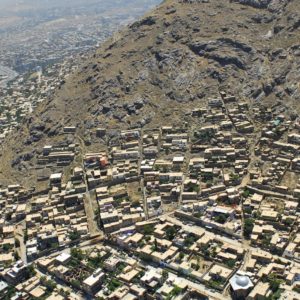The Stream, May 16: Toxic Algal Blooms Becoming More Frequent in U.S., Study Finds
The Global Rundown
A new report shows that algal blooms are becoming more frequent in U.S. waterways. Bottled water producers in Europe vow to increase plastic recycling. Portugal prepares for wildfire season after severe drought left 106 dead during the 2017 season. Trillion-dollar investors warn against oil extraction in the Alaskan wilderness, fearing “enormous reputational risk and public backlash.” Brazilian federal courts fight to close a nickel mining plant that is allegedly contaminating the Cateté River.
“The river is dead. If nothing is done, we are on the verge of a chemical ethnocide.” –João Paulo Botelho Vieira Filho, a Brazilian doctor, in reference to heavy metals that have polluted the Cateté River. Soon after a nickel plant began operating in 2010, researchers detected unsafe levels of nickel, iron, chromium, and copper in the river. Federal prosecutors are now fighting to shut down the plant and win $13.7 million in compensation for seven indigenous villages affected by the pollution. The Guardian
Latest WaterNews from Circle of Blue
What’s Up With Water – May 14, 2018 – “What’s Up With Water” condenses the need-to-know news on the world’s water into a weekly snapshot. Coverage this week includes: water-related terrorism, cholera in Yemen, and Colorado River water cutbacks.
HotSpots H2O, May 14: Water Shortages, Malnutrition, and Ebola Overwhelm the Congo – Since conflict broke out in the DR Congo’s Kasai region in 2016, fighting has forced more than 1 million people from their homes and cut off countless others from basic amenities such as food, water, and healthcare.
By The Numbers
90 percent Proportion of plastic water bottles that Europe’s bottled water producers hope to collect and recycle annually by 2025. Currently, about 60 percent of plastic water bottles are recycled across the European Union. Reuters
106 Number of people who died during Portugal’s 2017 fire season after intense drought left forests parched. In preparation for this year’s season, which begins June 1, the Portuguese government has placed 13 water-dropping helicopters and 6,300 firefighters on standby. Critics fear that these efforts may not be enough to prevent another round of deadly fires. The New York Times
Science, Studies, And Reports
The Environmental Working Group released a new report showing that potentially-hazardous algal blooms are becoming more common across the United States. In 2017, 169 blooms were reported in 40 states, versus three reported in 2010. Bacteria in algae can sometimes produce toxins that make water undrinkable, as well as harm aquatic life. MPR News
In context reporting from Circle of Blue: Toxic Algae Blooms.
On The Radar
A group of investors controlling more than $2.5 trillion sent a letter to 100 fossil fuels companies discouraging them from drilling in the Arctic National Wildlife Refuge (ANWR), a 19-million-acre nature reserve in Alaska that the Trump Administration hopes to open to oil and gas drilling. The investors called oil extraction in ANWR an “irresponsible business decision” amid an emerging low-carbon global economy. The indigenous Gwich’in people sent an accompanying letter, highlighting the environmental and water pollution risks of drilling. The Guardian
Kayla Ritter is a recent graduate of Michigan State University, where she studied International Relations and Teaching English to Speakers of Other Languages. She is currently based in Manton, Michigan. Kayla enjoys running, writing, and traveling. Contact Kayla Ritter




Leave a Reply
Want to join the discussion?Feel free to contribute!